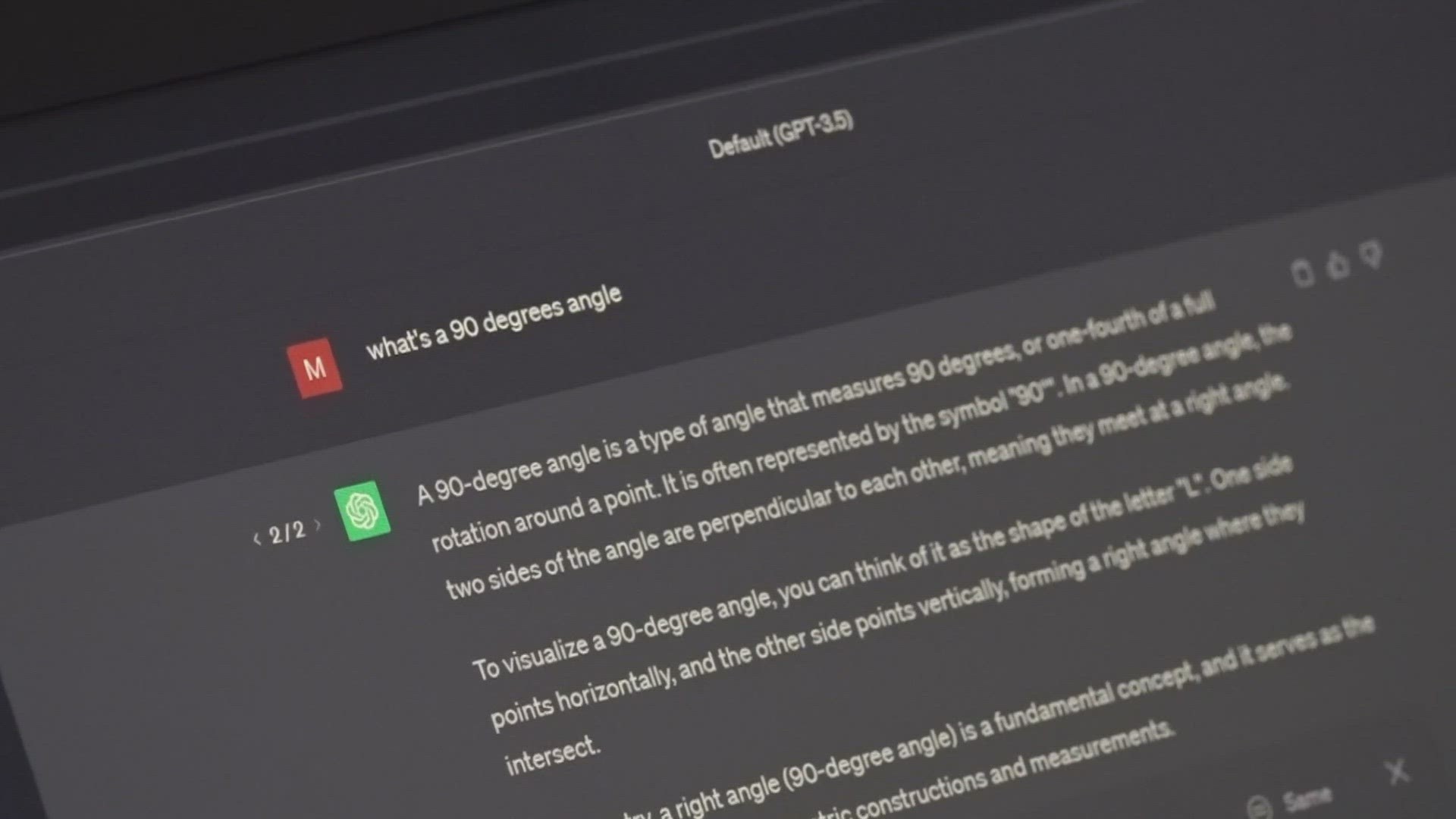KNOXVILLE, Tenn. — The University of Tennessee is welcoming students back in around a month. They may also welcome technology based on artificial intelligence.
Educators at UT will be able to choose how deeply they want to integrate artificial intelligence into their classrooms. Professors will be able to tell students they can use programs like ChatGPT as often as they want, or tell them they can only use the technology on some assignments.
Professors can also choose to completely bar the use of artificial intelligence in the classroom.
Much of UT's work with artificial intelligence is pioneered by Dr. Lynne Parker. She is the director of the AI Tennessee Initiative, which aims to make UT and the state a leader in "the data-intensive knowledge economy." She previously worked in The White House under three presidents — from former President Barrack Obama to President Joe Biden.
"Because, it's so quickly moving right now. We need to be able to act quickly and provide those kinds of educational opportunities to prepare our students for the jobs of the future," she said. "I think the introduction of ChatGPT back in the fall really opened people's eyes to how these technologies are changing education, how they're changing the workforce."
Some discussions around AI center on how it works. In a nutshell, AI technology is developed by telling a program to analyze different kinds of content. For example, as OpenAI developed ChatGPT they gave it large repositories of information to comb through. Their program analyzed the repositories, which the program refers to as it predicts the next word in a sentence.
Through the massive repositories, it can quickly respond to questions and comments from users with statements that appear to be from a human.
OpenAI said its program takes information from the internet, information licensed from third parties, and information that "human trainers" provide. Some novelists recently joined a class-action lawsuit against the company saying they never gave it permission to ingest a digital version of their work.
"So there is an issue of ethics and honesty, and making sure that information that we're using is correct. AI systems are not guaranteed to produce correct information," said Parker.

